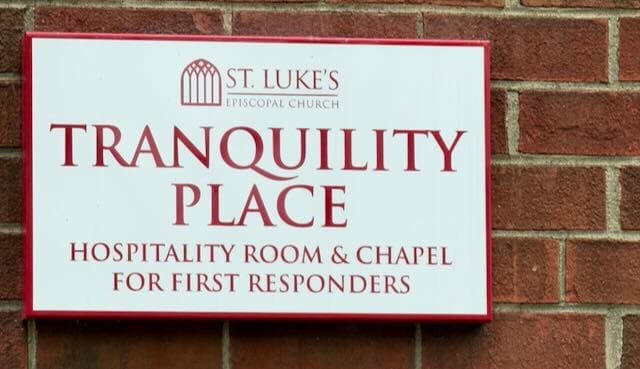Trust This.
By Joseph E. Seagle, Esq.
👋 Happy Friday! Next Tuesday is Back to the Future Day, the day the Delorean went to the future — in 2015 — a year in which hover cars and skateboards would be on every Main Street. Now that we’re past that future and haven’t yet sent a human to Mars, it looks like Doc was a little too optimistic.
1 big thing: Florida’s Asset-Rich and Cash-Poor Millionaires

Florida’s millionaire class is growing fast—but many can’t access their wealth. According to Bloomberg’s October 2025 analysis, (limited time gift link) nearly one in five U.S. households now qualifies as a millionaire, with a third of them minted since 2017 amid soaring home and stock prices. Yet, a rising share of that wealth is illiquid—locked up in home equity and retirement accounts—leaving even affluent Floridians short on cash.
The Mirage of the Millionaire Label
Today’s millionaires, especially those in the $1–$2 million net-worth range, typically have two-thirds of their assets tied up in homes and retirement funds, up eight points since 2017. That means they can’t easily spend or borrow against their wealth without incurring taxes, penalties, or steep interest costs. With HELOC rates near 8% and brokerage margin loans above 10%, converting paper wealth into liquid cash has never been pricier.
In Florida, where home values and retirement relocations surge in tandem, the dynamic is exceptionally sharp. Many “Sunshine State millionaires” are house-rich but cash-poor retirees, holding substantial equity in homes from Naples to Winter Park but hesitating to sell due to low locked-in mortgage rates and the high cost of downsizing.
Why It Matters: For business owners and licensed professionals, liquidity determines agility. Tapping into illiquid wealth is cumbersome when funding expansions, buying real estate, or weathering slow quarters. The report underscores that millionaire status no longer guarantees financial freedom—especially for professionals whose net worth depends on business valuations or property holdings rather than liquid assets.
Rethinking Wealth Strategy: Inflation and lifestyle creep are eroding purchasing power. The report notes that a “millionaire lifestyle” that once cost $1.4 million now requires $2.1 million, pushing many to aim for $10 million before considering early retirement. In Florida’s competitive market, that means reevaluating leverage, diversifying asset types, and optimizing liquidity.
The Bottom Line: Florida’s affluent households sit atop a growing pile of illiquid wealth. For entrepreneurs and professionals, the challenge isn’t earning the first million—it’s making that million move. In this environment, the real measure of prosperity may be flexibility, not net worth.
2. UBS Report: Miami’s “Bubble” ranking sparks pushback

Miami has been crowned the world’s top housing bubble risk — but local leaders insist the label doesn’t fit. The 2025 UBS Global Real Estate Bubble Index placed Miami above Tokyo and Zurich for “highest bubble risk,” citing record price-to-rent ratios and affordability pressures. Yet Florida Realtors and analysts say the city’s fundamentals remain sound, powered by cash buyers, strong job creation, and a steady influx of domestic wealth.
Cash keeps Miami grounded
Ana Bozovic, founder of Analytics Miami, dismissed UBS’s conclusion as “clickbait,” arguing that the report ignores the market’s all-cash backbone. Over 70% of Miami condo sales and 80% of homes priced above $2,000 per square foot are cash purchases — a dynamic that makes the city’s housing cycle far less debt-driven than the 2008 bubble.
“This market isn’t fueled by overleveraged debt,” Bozovic said. “It’s fueled by capital migration and real wealth.”
She added that inventory levels remain below pre-pandemic norms — a key signal of stability. “If we were in bubble territory, we’d see listings piling up. We’re not.”
Adaptation, not speculation
Florida Realtors President Tim Weisheyer said the state’s housing ecosystem has adjusted to higher interest rates and remains fundamentally strong. “Buyers are adapting — negotiating rate buydowns, comparing rent hikes to ownership costs — and choosing to buy,” he said.
Weisheyer noted that insurance fears are also overstated: “We’ve added 17 new carriers this year, and Florida now has the lowest year-over-year premium increase in the nation.”
Why it matters: Entrepreneurs, developers, and practice owners across the state should read the UBS ranking less as a warning and more as a reminder of Florida’s unique housing DNA. Wealth migration, cash liquidity, and structural undersupply remain defining features — not red flags.
The takeaway: Miami isn’t a bubble waiting to pop; it’s a market recalibrating after historic growth. For Florida professionals, that means opportunity — not panic — as the state continues to anchor itself as the capital of post-pandemic wealth migration.
Go Deeper: HousingWire (gift link for a limited time)
Your Florida News Source!
Join 250,000 Floridians who rely on Flyover Florida for their daily news fix! Our quick, concise updates make it easy to stay informed about local news, events, and stories that matter to you. In just a few minutes each morning, you’ll be up-to-date without the overwhelm. Discover the convenience of staying ahead with Flyover Florida, your essential source for all things Florida!
3. Succession planning for a CEO Visionary Founder

LendingTree founder Doug Lebda’s sudden death last weekend was more than a corporate headline — it was a wake-up call for every business owner. Even billion-dollar enterprises rely on foresight to survive the loss of a founder. For privately held companies, the absence of a plan can be catastrophic.
Why it matters: LendingTree’s board acted fast, appointing its COO as the new CEO within days of Lebda’s passing. Their swift move steadied the markets — and underscored how governance and preparation keep companies stable through shock. Most private businesses, however, lack that infrastructure.
The deeper issue: Entrepreneurs often delay succession planning because it feels premature or uncomfortable. But succession isn’t about pessimism — it’s about stewardship. It ensures employees stay paid, clients stay served, and family harmony is preserved when life changes without warning.
Key takeaways:
Succession and asset protection go hand in hand: one preserves continuity, the other preserves value.
Without a plan, bank accounts can freeze, contracts stall, and family disputes erupt.
Legal tools — trusts, buy-sell agreements, and clear governance documents — turn confusion into continuity.
A founder’s real legacy isn’t the business itself, but the foresight to help it thrive beyond their leadership.
Bottom line: Business succession is an act of leadership — and love. Doug Lebda’s passing is a sobering reminder that vision can outlive its founder, but only if it’s planned that way.
Go deeper on this issue and this tragic story at AspireLegal.com
4. Focus on the gain; not just the gap

Got to tour St. Luke’s Episcopal Church last weekend as part of Salisbury, NC’s 50th Annual Historic Home Tour. The church, founded in 1755, offers space 24/7 for first responders to come in, eat, rest, and calm down before returning home to their families after a day of handling other families’ tragedies. I thought it was a great idea and service.
Entrepreneurs are wired for progress. You hit one milestone and immediately start scanning the horizon for the next. That drive fuels growth—but it can also quietly rob you of satisfaction and clarity.
The late Dan Sullivan, creator of The Gap and The Gain, teaches that many high achievers live in the gap—comparing where they are now to where they wish they were. The problem? That finish line keeps moving.
Measure backward, not forward
Instead of obsessing over the distance between you and your ultimate goal (the gap), look backward and measure how far you’ve come (the gain).
Reflect on wins—large and small—since the last quarter or EOS quarterly session.
Recognize the systems, people, and habits that made those gains possible.
Reinforce them as your foundation for the next push.
This isn’t self-congratulation—it’s calibration. When you lead from a place of progress, you bring grounded confidence to your next set of Rocks.
Schedule “Gain Time”
Just like you’d block focus time for strategic planning, block time for perspective.
Use quarterly EOS sessions, team L10 meetings, or personal retreats to review your gains.
Celebrate with your team; it builds culture and alignment around what’s working.
Ask: What did we learn? What strengths did we reinforce?
The mindset shift
Leaders who live in the gain stay energized. They see challenges as data, not defeat. That shift doesn’t just make you happier—it makes your business more resilient.
Action step: Take 15 minutes this week to write down three specific gains from the past 90 days. Review them before your next planning session. Momentum builds where gratitude grows.
We hope you found this helpful — any feedback is appreciated and can be shared by hitting reply or using the feedback feature below.
Was this email forwarded to you? Subscribe here.
Have an idea or issue to share? Email us.
Connect with us using your preferred social media and website links for MyLandTrustee and Aspire Legal Solutions.
Our mailing address: PO Box 547945, Orlando, FL 32854-7945
Our physical address: 1901 West Colonial Drive, First Floor, Orlando, FL 32804
Be on the lookout for our next issue! 👋

